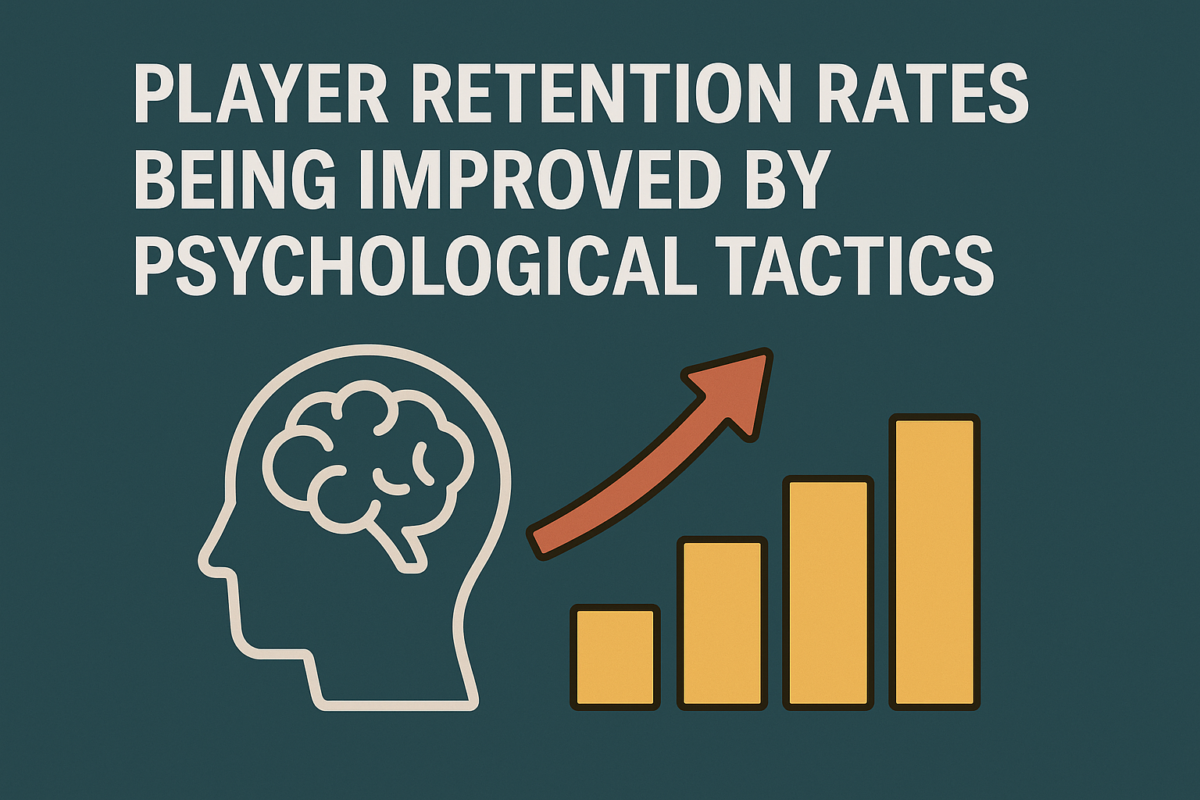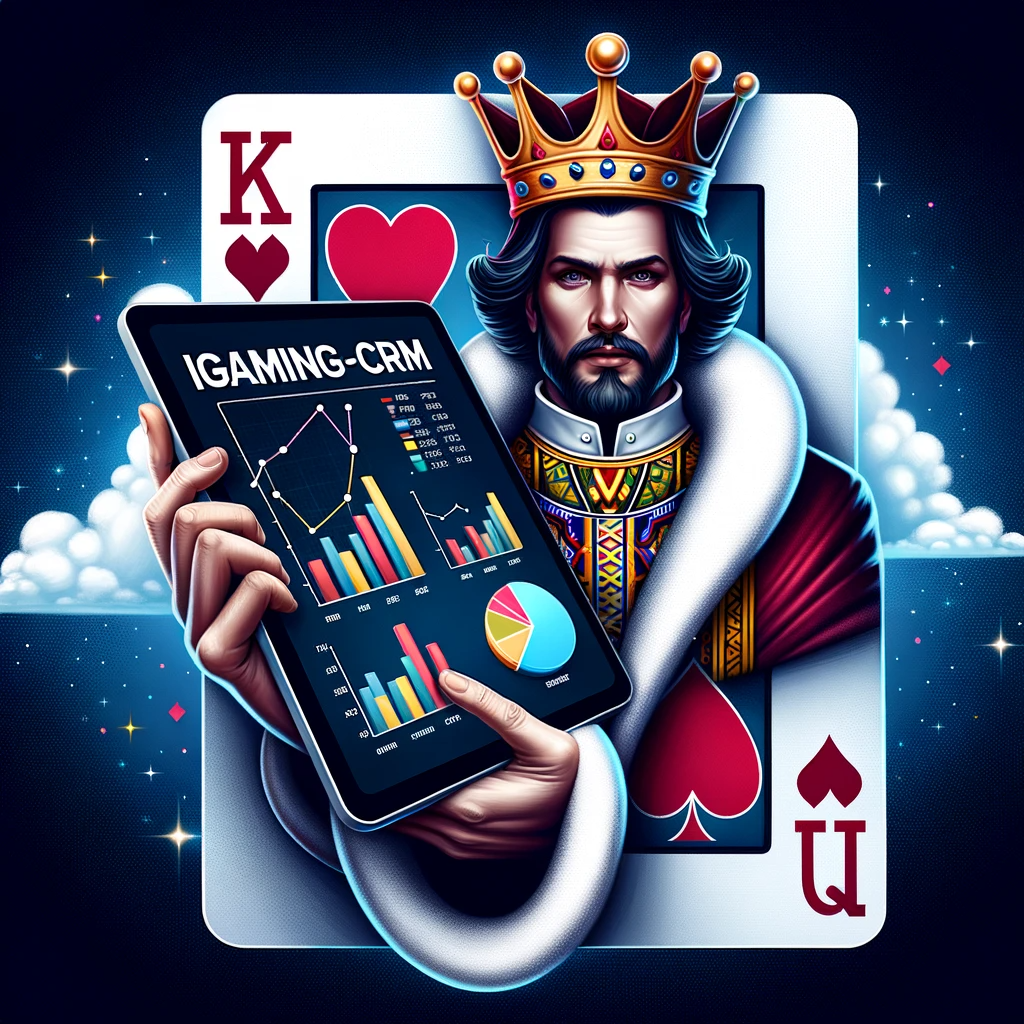Player Retention Rates Being Improved by Psychological Tactics

Introduction
In the ultra-competitive world of casinos and iGaming, attracting new players is only half the battle. Retaining them is what determines long-term success. This is where psychological tactics in casino, combined with powerful CRM player retention tools, come into play.
This blog explores five core psychological strategies used to boost player satisfaction, deepen engagement, and improve loyalty using a mix of gaming psychology strategies, CRM engagement systems, and behavioral science in iGaming.
1. The Power of Variable Rewards (Intermittent Reinforcement)
One of the oldest and most effective psychological principles in gambling is intermittent reinforcement, also known as the “variable reward” tactic. It taps into a deep neurological reward loop, which keeps players engaged.
Why It Works:
- The unpredictability of rewards increases dopamine levels.
- Players are motivated to continue playing for the possibility of a win.
- Creates habit loops and stickiness.
How CRM Tools Leverage It:
- Personalized reward schedules via CRM campaigns
- Surprise bonuses at irregular intervals
- Dynamic offers triggered by behavioral milestones
2. Personalization Through Behavioral Data
Modern iGaming software allows operators to collect, analyze, and act on behavioral player data at scale. This enables personalized gaming experiences that significantly improve retention.
Examples:
- Game recommendations based on playing habits
- Tailored offers based on time spent and betting style
- Personalized messaging frequency and tone
Psychology Behind It:
- Personalization increases perceived value and relevance.
- Players feel understood and appreciate, boosting satisfaction and loyalty.
CRM Implementation:
- AI-driven segmentation
- Personalized communication workflows
- Custom offers based on behavioral tags
3. Loss Aversion and Framing Strategies
Loss aversion is the psychological principle that people strongly prefer avoiding losses over acquiring gains. In casino environments, how a situation is framed influences decisions.
ALSO READ: How to Get Investors Excited About Your iGaming Business
Example Tactics:
- Offering “free spins” to recover from recent losses
- Positioning bonuses as “you’re about to lose it” unless claimed
- Providing “rescue rewards” to inactive players
CRM Retention Tool Use:
- Triggered reactivation campaigns based on loss patterns
- Urgency-focused push notifications
- Use of countdown timers and deadline-driven bonuses
Why It Works:
This taps into the brain’s fear of losing out, driving re-engagement and continued play.
4. Social Proof and Leaderboards
Humans are social creatures. Seeing what others are doing affects our choices, this is known as social proof.
Common Casino Implementations:
- Live feed of recent big winners
- Leaderboards for competitive games
- “Trending games” that showcase popularity
Psychological Impact:
- Encourages imitation and participation
- Triggers FOMO (Fear of Missing Out)
- Enhances competitiveness and engagement
CRM Tools That Support This:
- Real-time activity feeds
- Social badges and gamification
- Peer benchmarking dashboards
5. Goal Gradient Effect and Progress Tracking
The goal gradient effect is a cognitive bias where people accelerate their behavior as they get closer to achieving a goal. Casinos use this in reward programs and game structures.
How It’s Applied:
- Loyalty tiers that escalate based on play
- Progress bars showing how close players are to earning a reward
- Daily or weekly challenges with visual tracking
CRM Gamification Examples:
- XP systems within CRM tools
- Automated notifications when goals are near
- Dynamic goals that adapt based on user profile
Result:
Players are more likely to continue playing to “complete” the goal, leading to higher player retention.
Summary Table: 5 Psychological Tactics vs CRM Implementation
| Psychological Principle | Casino Use Case | CRM Implementation |
| Variable Rewards | Irregular bonuses and prize drops | Smart campaign scheduling |
| Personalization | Tailored game suggestions and offers | AI-based behavioral segmentation |
| Loss Aversion | Rescue rewards and urgent offers | Triggered reactivation flows |
| Social Proof | Leaderboards and winner feeds | Live activity widgets and gamification |
| Goal Gradient Effect | Tiered loyalty programs and challenge goals | Visual progress tracking and nudges |
Real-World Use Case: CRM-Driven Player Retention Boost
A mid-tier iGaming platform implemented a CRM strategy centered on behavioral psychology:
- Used variable reward models to surprise loyal users weekly
- Launched tiered loyalty program with visual goal-tracking
- Ran social leaderboards in high-stakes games
Results:
- 25% increase in daily active users
- 40% boost in repeat deposits
- 17% improvement in overall player retention
FAQs
Q1: Can small casinos use these psychological tactics effectively?
A1: Yes. Many CRM platforms offer plug-and-play behavioral tools suitable for smaller operators.
Q2: Are psychological tactics ethical in gaming?
A2: When used responsibly and transparently, these tactics can enhance entertainment value and improve user satisfaction.
Q3: How do I measure success of retention strategies?
A3: Metrics like DAUs, MAUs, churn rate, LTV, and reactivation conversions help quantify success.
Call to Action
Ready to apply psychological science and CRM tools to boost player engagement on your platform? Let our behavioral specialists design a custom iGaming retention strategy for you.
👉 Contact us today or book a free 15-minute consultation.
